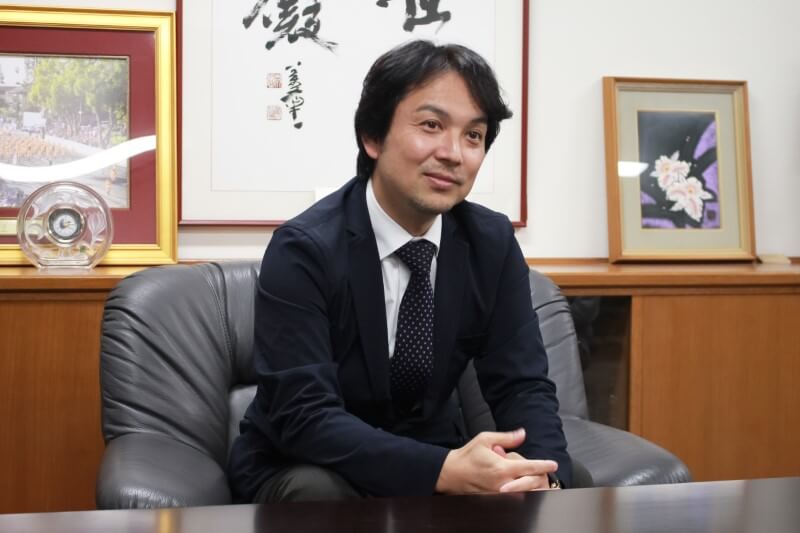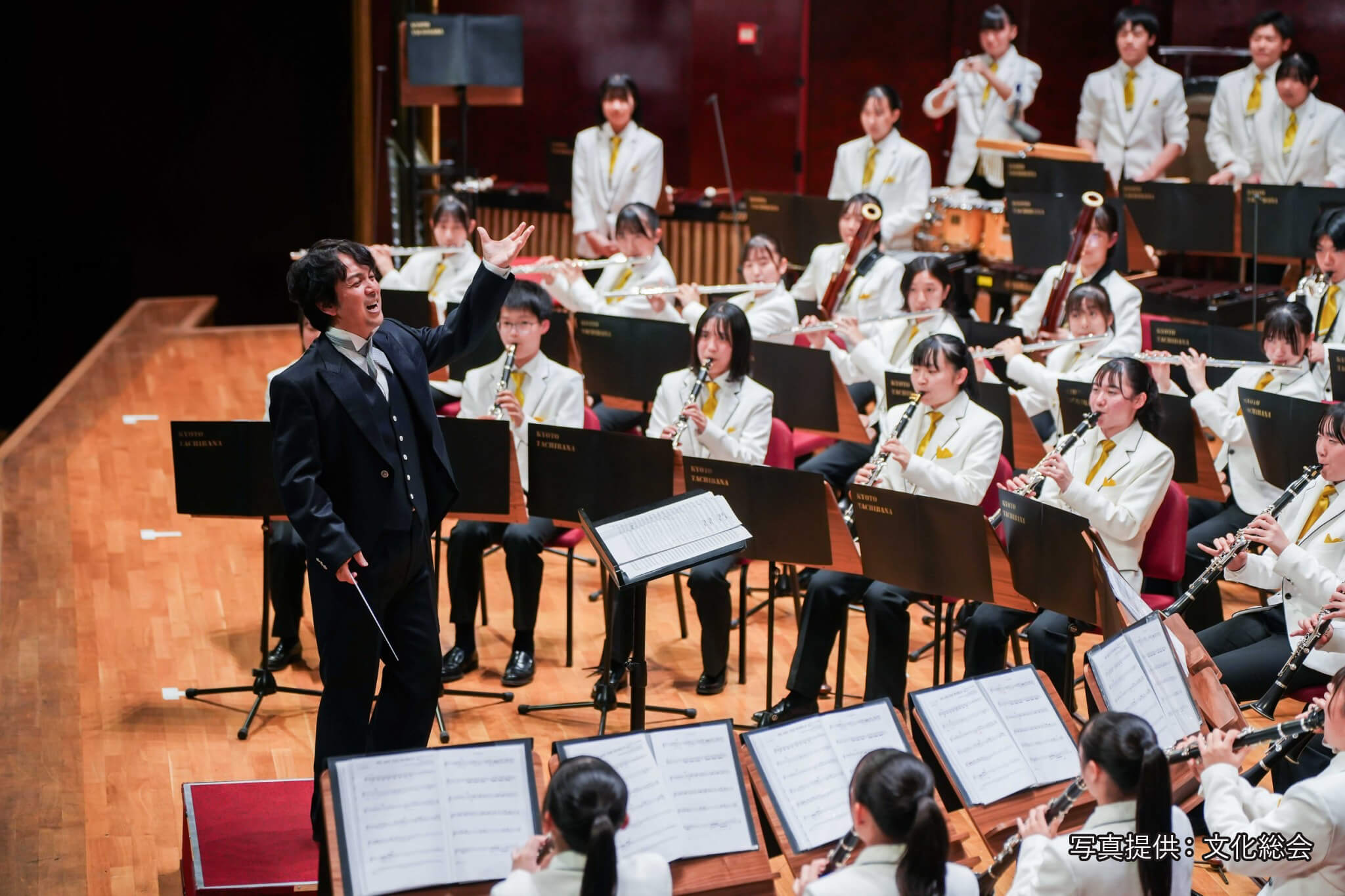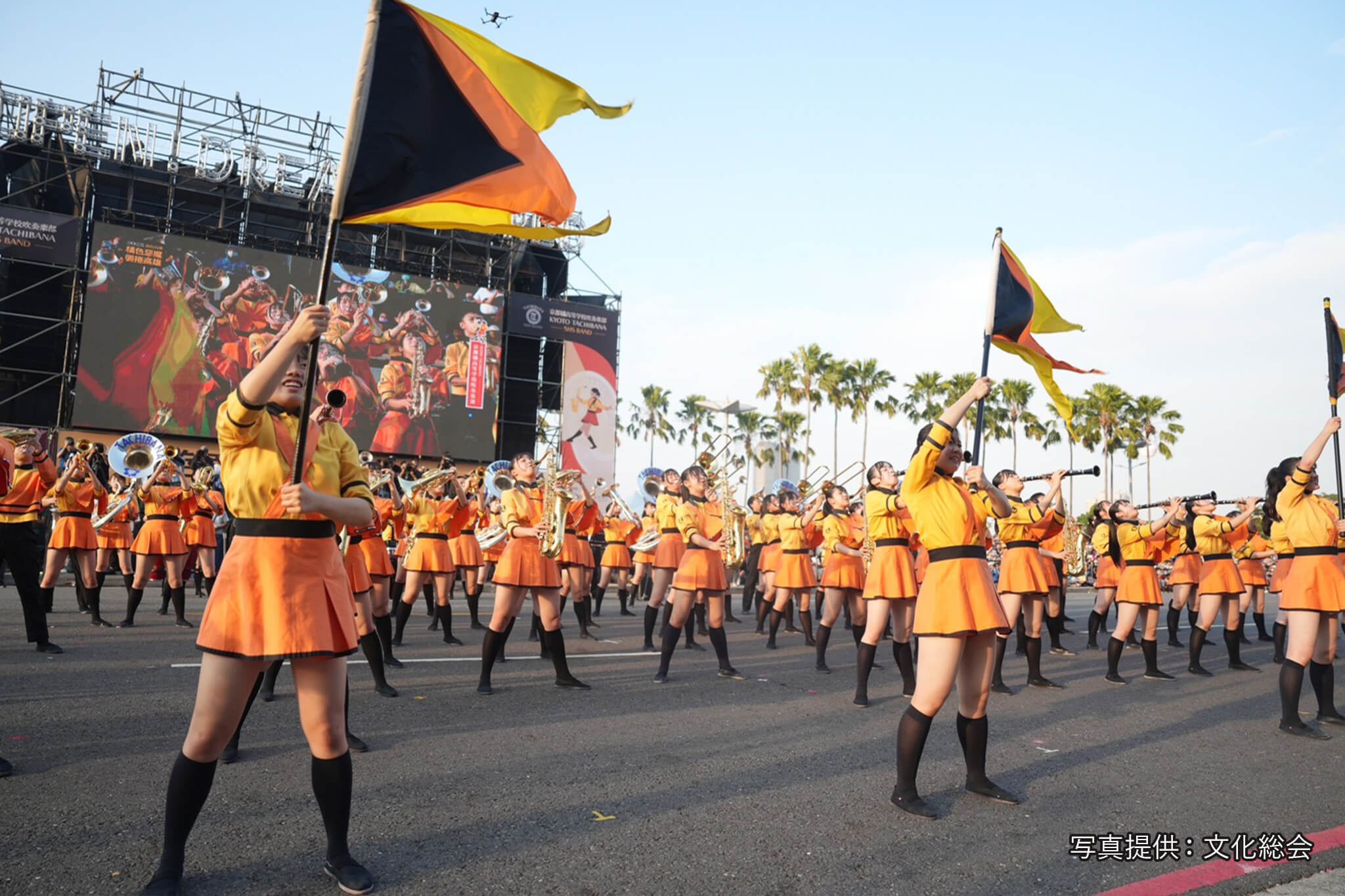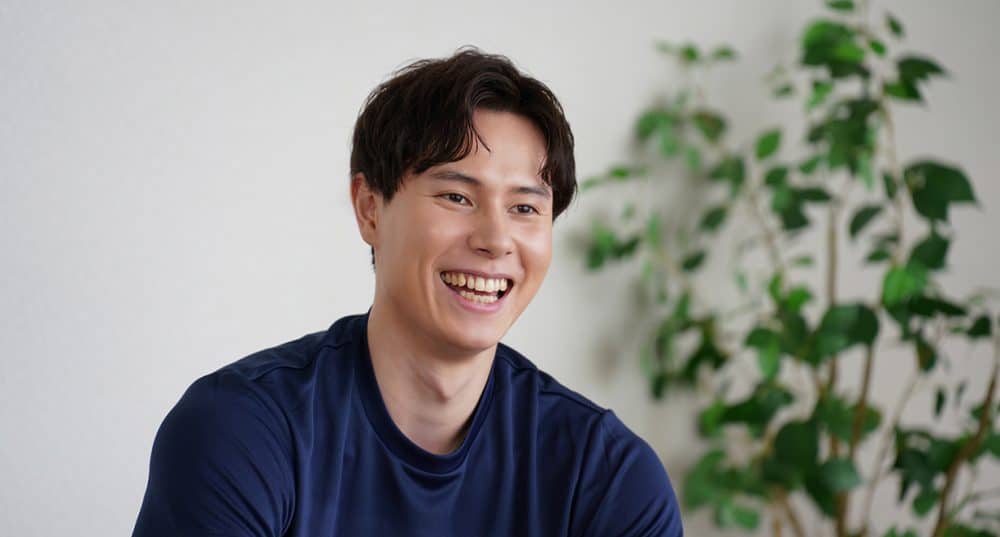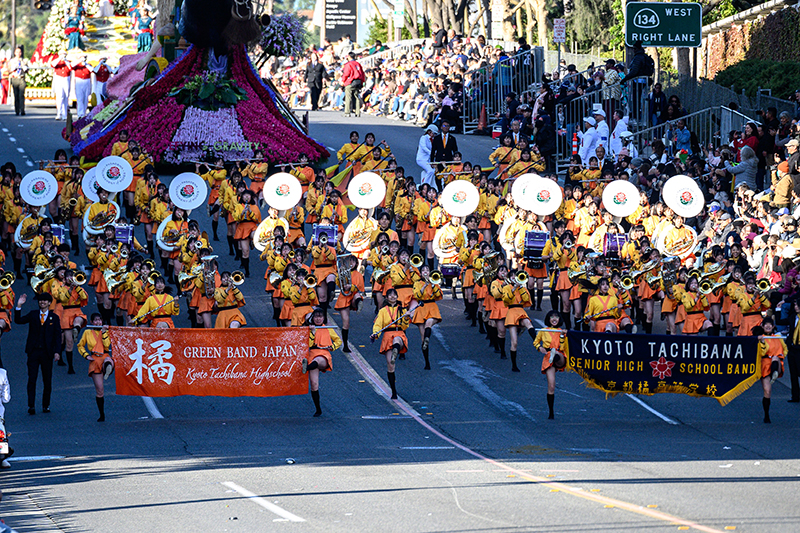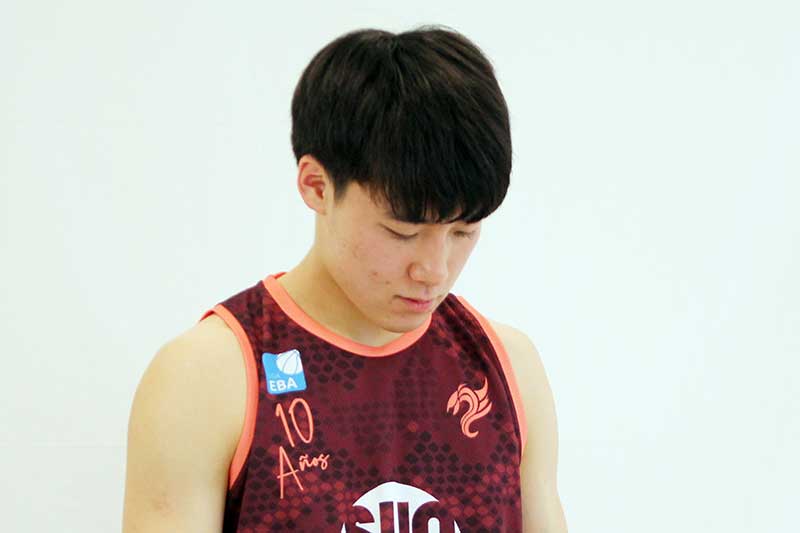Journal
サン・クロレラの取り組みや
サポートするアスリートたちのTOPICS。
Find out about Sun Chlorella's corporate activities and sponsored athletes
Kyoto Tachibana Senior High School Band
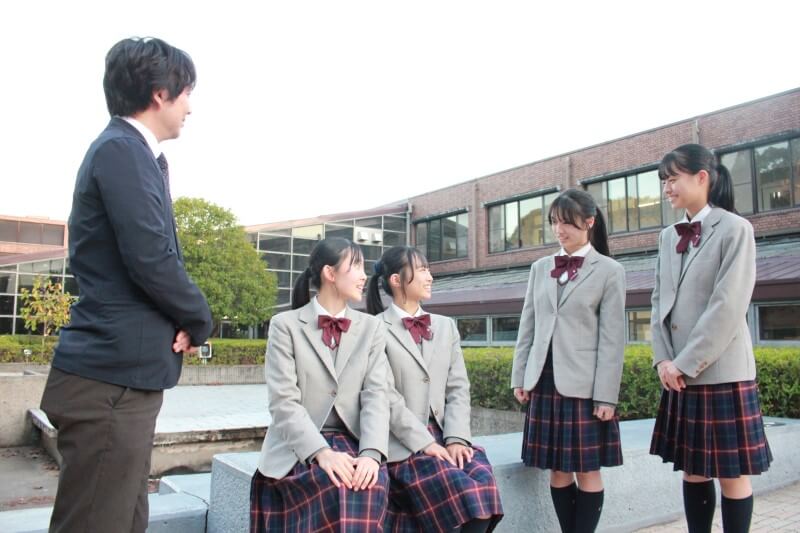
The Kyoto Tachibana Senior High School Band has enthralled audiences not just in Japan but also in the U.S. and Taiwan, garnering worldwide attention and recognized as one of Newsweek Japan’s “100 Japanese People the World Respects” in 2023. Furthermore, there were high expectations for them to achieve an unprecedented feat of winning the Gold Prize in the All Japan Marching Contest for three consecutive years, a first in the history of Kyoto Tachibana Senior High. For Advisor Yutaka Kaneshiro and especially for the 120th generation band members including club president Nakajima and drum major Noguchi, pressure was added to ensure that their entire three years of high school would end victoriously by winning the Gold Prize. This year was approached with strong determination as a culmination for both the Kyoto Tachibana Senior High School Band and members of the graduating class.
This is a story about the 120th generation members, culminating in the achievement of the feat of winning the All Japan Marching Contest Gold Prize for three consecutive years despite facing various challenges. In the first half we share Yutaka Kaneshiro’s journey, including the process leading up to their achievement.
The magnified brilliance of the resilient 120th generation band
The 120th generation band is led by Nakajima and Noguchi, who used to be the next club president and drum major when we interviewed them last year. It was a crucial year for them as they aimed for the unprecedented achievement of winning the Gold Prize in the All Japan Marching Contest for three consecutive years, a first in the history of Kyoto Tachibana Senior High. They were burdened with higher expectations than usual, and Mr. Kaneshiro recalls how he had been sensing small signs of anxiety and restlessness since early spring. While each member showed shining abilities and senses, he felt that they were still emotionally immature.
Kaneshiro: I felt that this year’s team, especially the third-year students, had extremely high individual abilities. I knew that they had the potential to accomplish incredible heights if they came together. However, precisely because of that, I also had an intuitive sense that it might be difficult to unify them as one cohesive unit. So, I gathered the members and reminded them about the importance of discipline, teamwork, and communication.
Kaneshiro has described himself as someone who usually refrains from giving motivational speeches or flashy pep talks in front of his students even on the day of a competition. He was different this time; he spoke candidly and directly about his passion for wind ensemble, as a musician and as their instructor.
However, after the new academic year began in April and as the early summer season was approaching, the band members were still having a hard time trying to build their team. Individual strengths were not adding up in creating an elevated, harmonious group performance. Mr. Kaneshiro was aware of how each member was striving to make it work, but he felt frustrated that those efforts were not yielding results. At the same time, he keenly understood that the students were the ones who were struggling the most. He knew all too well that they would eventually come to a realization and overcome their challenge on their own. He decided to believe in them and wait.
Kaneshiro: I believe it was the end of summer when we reached a turning point. I felt a change in everyone’s mindset, as students were studying their own practice methods and started to approach their practice sessions with self-determination. They practiced like they were working on a research project. They were thinking on their own and discussing in their own words, self-critiquing whether their performance was good or bad. And like anything else, you need experience to judge things. I believe they were able to work this way because they had gone through a difficult time together since last spring.
On September 23rd, the Kyoto Tachibana Senior High School Band delivered a remarkably impressive performance at the Kansai Marching Contest. While they always had potential, they struggled with team building and had not been able to fully demonstrate their abilities. However, there was suddenly a noticeable cohesion within the team after the summer season. They deservingly won the gold award, securing their spot in the national competition. Then, at the All Japan Marching Contest held on November 19th, they showed a dynamic, awe-inspiring performance, which crowned them their long-awaited feat of winning the Gold Prize for three consecutive years.
Kaneshiro: I was just truly astonished. Their wonderful performance was one of the best I’ve ever heard. Despite having stumbled in the beginning of the year, if we look solely at how much they have grown in less than a year, the 120th generation is undoubtedly the best in the history of our band. It’s truly a case of “after the rain, the ground hardens”.
Mr. Kaneshiro expressed relief rather than joy. He was not only responsible as a band instructor but also as a teacher tasked with observing and guiding his students.
Wind music as an educational tool for enhancing human potential
How did the Kyoto Tachibana Senior High School Band manage to achieve growth both technically and personally in such a short period? The secret lies in Mr. Kaneshiro’s way of teaching. He would instruct them unfairly on purpose—saying “no” to the same thing he said “yes” the day before, or not always explaining why he would scold them. His approach may seem contrary to the way children are generally taught these days, so why does he deliberately choose to do so? He believes that experiencing unfairness would lead children to think for themselves and find their own answers.
Kaneshiro: While they are still students, they have adults around them like teachers and parents who can guide them with answers. But once they enter society, they’d be expected to be able to ask questions to themselves that don’t necessarily have answers. Society is also a place where irrational things happen every day, like when you work for a company and no matter how meticulously you design a plan, it can be invalidated by a single word from a superior or a client. Yet, in today’s society, there are hardly any opportunities where children can gain the experience necessary to cope with such injustice and tackle problems without answers. People can begin to think for themselves only when they are truly pushed to the limit. That’s why I wanted them to gain experiences through activities in our wind ensemble so that they can apply what they’ve learned when they enter society.
Mr. Kaneshiro’s thoughts are similar to his philosophy as an educator. Today, an educator would respect individuality and encourages students to develop a growth mindset by using praise. They would logically and effectively guide their students to learn the correct answer and avoid raising unreasonable topics. These are the qualities of an ideal boss or teacher in recent times. Of course, Mr. Kaneshiro does not deny this. However, he also has doubts as to whether these qualities alone are sufficient. He asked himself, “while every member inherently possesses their own abilities, how can I guide those students who haven’t discovered their own talent to train themselves?” He felt that his students also needed to be in an environment with a certain level of rigor.
Kaneshiro: When it comes to wind ensemble, it’s critical that we improve the performance quality of students with less experience, rather than to enhance the talent of skilled students. This is because a missed note in an ensemble or a wrong step in marching are the ones that stand out. Therefore, it is crucial to raise the level of students from the bottom up. I believe that placing priority on improving negative aspects is also about enhancing human potential, which also has to do with educational theory. Indeed, one could say that the 120th generation band this year exemplified such a philosophy as a team. In that sense, I feel that wind ensemble is very conducive to children’s growth and school education, and I now think that it was the 120th generation members who reminded me of that.
The Kyoto Tachibana Senior High School Band achieved the remarkable feat of winning the Gold Prize for three consecutive years at the All Japan Marching Contest. However, Mr. Kaneshiro firmly asserts that these competitions and awards are simply steppingstones toward the ultimate goal of performing “the best wind ensemble in Japan”. He believes that the true goal is to grow as individuals through their music and eventually find a place where one can shine in society. Training and nurturing individuals in this manner through wind ensemble is what Mr. Kaneshiro considers to be his true mission.
Striving for a universal, world-standard excellence
The momentum of the Kyoto Tachibana Senior High School Band is unstoppable. Last year, their performance at the National Holiday parade in Taiwan led to a surge in popularity and even received a direct video message from President Tsai Ing-wen. As a result, the band continues to have ongoing exchanges with Taiwanese officials and organizations, with another performance scheduled in Taiwan this December.
Last time, they were invited by the National Cultural Congress as part of the National Day parade, and this time, multiple Taiwanese companies are sponsoring their solo performance. Moreover, they would be embarking on a tour, visiting Taipei and Kaohsiung. Additionally, this year, the ensemble was selected as one of Newsweek Japan’s “100 Japanese People the World Respects” and next year, they would also be performing at the Rose Parade in California for the first time in seven years as the Kyoto Tachibana Senior High School Band.
Kaneshiro: As the coronavirus pandemic is finally ending, we are receiving offers to play internationally more than ever. Which is why this year, we have focused on practicing songs that are known worldwide, rather than the songs that are popular in Japan. We hope that everyone will enjoy the band’s performance.
